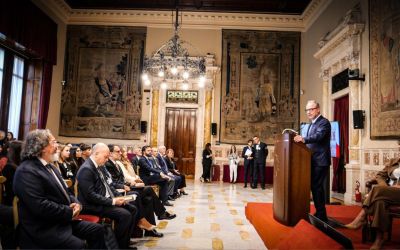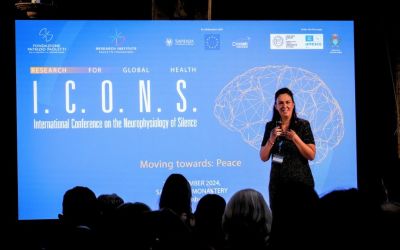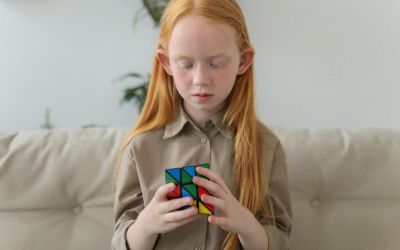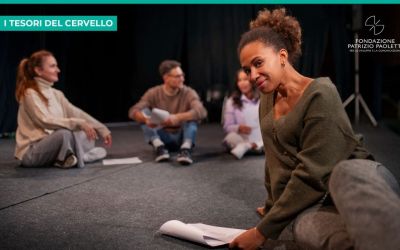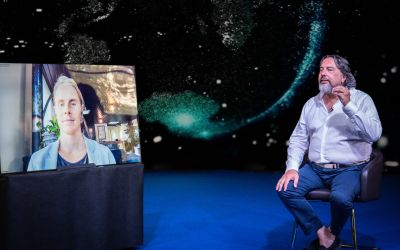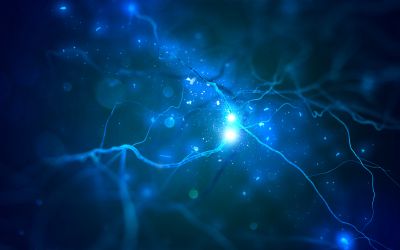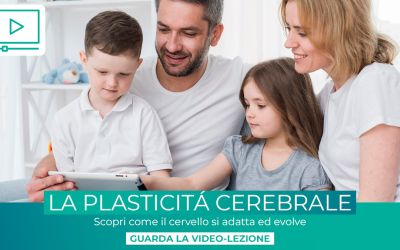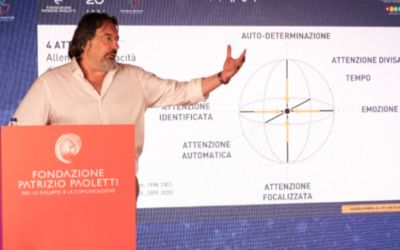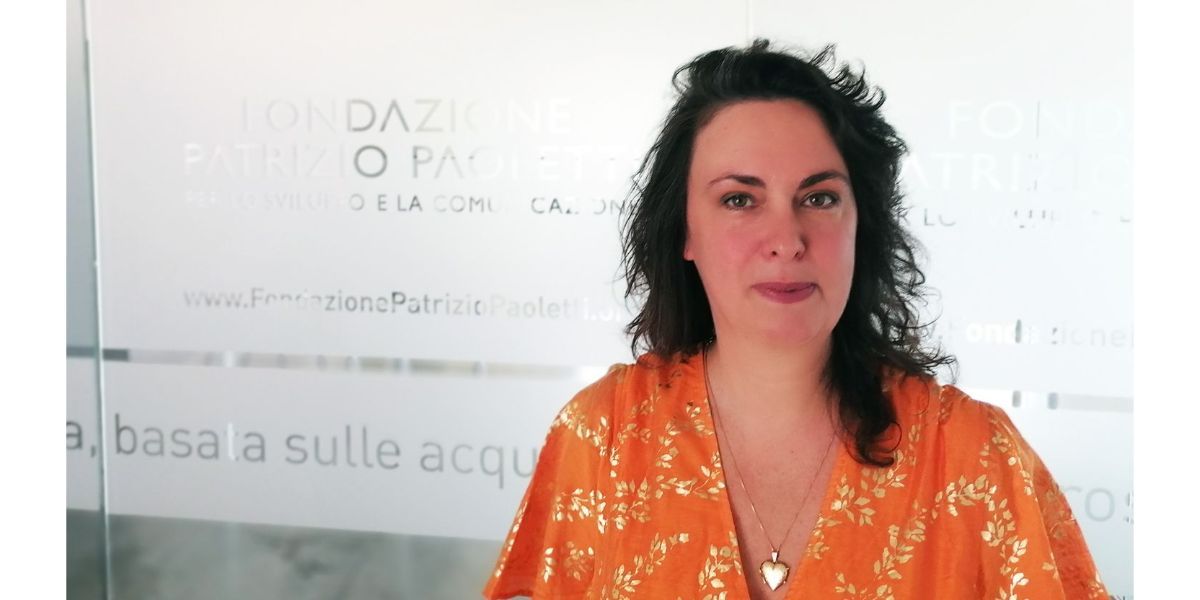
Intervista a Tal D. Ben-Soussan, direttrice del RINED
La ricerca neuroscientifica come guida al benessere psicofisico
L’Istituto di Ricerca in NeuroscienzeIl cervello umano è una delle strutture più complesse e af... Leggi, Educazione e DidatticaLa didattica non è semplicemente l’atto di insegnare, ma ... Leggi (RINED) è parte della Fondazione Patrizio Paoletti (FPP), una fondazione italiana iscritta all’Anagrafe Nazionale delle Ricerche presso il Ministero dell’Istruzione e del Merito (MIUR). L’obiettivo principale della RINED, e di FPP in generale, è quello di individuare nuovi modelli teorici e pratici di conoscenza che promuovano la salute e il benessere cognitivo, fisico, psicologico ed emotivo dall’infanzia alla vecchiaia. Vi presentiamo oggi un’intervista a Tal D. Ben-Soussan, neuroscienziata formatasi presso l’israeliana Bar-Ilan University e ormai da due decadi direttrice del RINED.
Perché fare neuroscienze e ricerca in generale?
Innanzitutto, perché capire i meccanismi di funzionamento del cervello in relazione al nostro benessere o alla nostra sofferenza fisica, emotiva e cognitiva può aiutare a creare strategie di crescita. Se sai quali percorsi e onde cerebraliLe onde cerebrali sono le oscillazioni elettriche generate d... Leggi sono collegati a specifici stati mentali puoi attivarli volontariamente, scegliendo lo stato che desideri.
Può fare un esempio?
Certo, per esempio è il caso della meditazioneEsistono tanti modi per definire la meditazione, ma forse il... Leggi e dell’esercizio fisico. Oggi sappiamo quali onde cerebrali (milioni di neuroni che sparano insieme, lavorando in collaborazione) sono collegate a diversi tipi di stati e a diversi tipi di meditazione. Quindi se vogliamo essere più concentrati, ci sono tecniche per questo, lo stesso se vogliamo essere più rilassati. Se ciò che si vuole raggiungere è un maggiore senso di unità con il mondo, con le altre persone, con la natura e aumentare anche l’empatiaL'empatia è un'abilità fondamentale che ci consente di ent... Leggi, possiamo essere molto fiduciosi al riguardo, nella nostra capacità di comprendere i meccanismi cerebrali. Non è solo una questione teorica, può avere ricadute concrete utili a cambiare la propria vita. Personalmente, credo molto nelle neuroscienze applicate, ciò che sappiamo e ciò che miriamo a scoprire dovrebbe servire e di fatto serve alla società tutta.
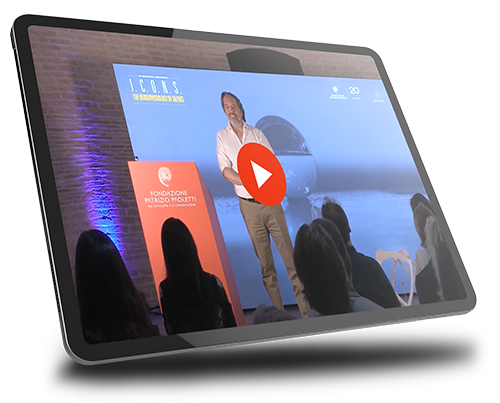
MEDITAZIONI GUIDATE
Guarda il video e scopri 3 pratiche per allenare la tua mente
"*" indica i campi obbligatori
Abbiamo ancora molto da scoprire. Abbiamo iniziato più di 20 anni fa. Con partecipanti sani con i quali esaminavamo gli effetti sulla cognizione di una meditazione in movimento appositamente progettata da Patrizio Paoletti, il Quadrato Motor TrainingIl Quadrato Motor Training (QMT) è una tecnica di training ... Leggi (QMT). C’è voluto un po’ di tempo perché la comunità medica e molti ricercatori cogliessero il nesso. E nel corso degli anni abbiamo dimostrato come l’attivazione di alcune parti del cervello (come il cervellettoIl cervelletto è una struttura composta da due emisferi cer... Leggi) e il passaggio a frequenze più lente di attivazione sinaptica possano aiutare sia in diverse abilità cognitive, come la cognizione spaziale e la creativitàLa creatività è la capacità di generare idee originali e ... Leggi, sia per il benessere emotivo.
Abbiamo poi esteso la ricerca alle difficoltà di apprendimentoIl termine apprendimento - con i sinonimi imparare, assimila... Leggi. Dimostrando un miglioramento della lettura, della cognizione spaziale e temporale anche nella dislessiaGià nel 1676 abbiamo uno dei primi casi descritti di indivi... Leggi e nelle difficoltà di apprendimento più gravi. Negli ultimi anni abbiamo avviato promettenti collaborazioni con diverse università e ospedali, lavorando anche con i pazienti affetti da Alzheimer con risultati simili.
La prossima settimana finalmente implementeremo la ricerca anche con i pazienti affetti da Parkinson, con il mio meraviglioso team molecolare (le dottoresse Sabrina Venditti dell’Università Sapienza e Micaela Caserta e Loredana Verdone del CNR, che hanno lavorato con me negli ultimi 10 anni) e il professor Carlo Quattrochi. Uniremo due linee di indagine, quella sui cambiamenti neuroanatomici e quella sui cambiamenti molecolari a seguito del QMT in persone affette da Parkinson. C’è ancora molto da studiare e contesti in cui è necessario supportare le persone che soffrono di diverse disabilità motorie e cognitive, ed eventualmente anche emotive. Le nostre scoperte, anni fa, hanno evidenziato una crescente comprensione del valore dell’interazione tra attività fisica, emozioniLe emozioni sono risposte psicofisiologiche complesse che ci... Leggi positive e autoregolazione.
È per questo che ha dedicato gli ultimi 20 anni di ricerca e attività alla Fondazione Patrizio Paoletti e all’istituto di ricerca RINED?
Sì decisamente, uniamo il perseguimento della conoscenza accademica con la sua applicazione a diversi campi e popolazioni del tessuto sociale. Oltre a condurre studi all’avanguardia in laboratorio, li conduciamo anche sul campo, esaminando e insegnando agli studenti universitari. Conduciamo anche studi online, per esempio, esaminando la connessione tra il benessere delle persone, il movimento (come la danza) e la percezione dello spazio. Conduciamo conferenze per la comunità scientifica e per il grande pubblico (Come i prossimi Fechner Day e ICONS).
Ha un ultimo messaggio per i nostri lettori?
Sì. Se sentite di essere come bloccati da qualche parte nella vostra vita e volete venirne fuori, o se semplicemente volete migliorare un certo aspetto della vostra vita, dovreste avere una mappa. Questa mappa può anche essere rappresentata dal vostro cervello. È l’antica metafora del labirinto. E ora abbiamo la bellissima opportunità di esaminarla cautamente con diversi strumenti affascinanti, rappresentati dai cambiamenti elettrofisiologici nel cervello, nel sistema immunitario e persino nel DNA.
Mi sento privilegiata per aver avuto l’opportunità di indirizzare e orientare le mie conoscenze accademiche e la mia curiositàLa curiosità è un'emozione fondamentale che si manifesta c... Leggi verso queste linee di ricerca. E poter contribuire alla loro continua espansione a livello mondiale, in termini di temi e metodi.
Sii parte del cambiamento. Condividere responsabilmente contenuti è un gesto che significa sostenibilità
Alleniamo l'intelligenza emotivaLa prima definizione di Intelligenza Emotiva in quanto tale ... Leggi: che emozione ti suscita questo articolo?
